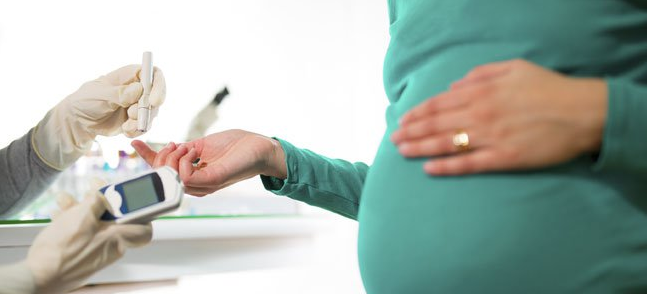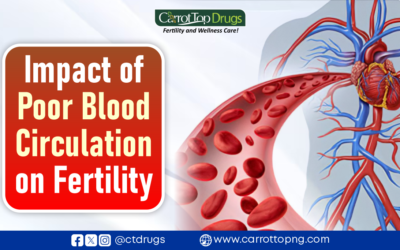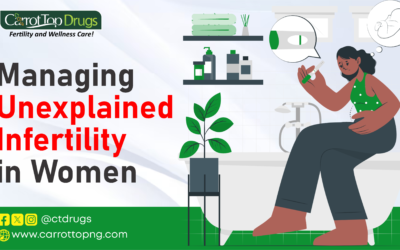Gestational diabetes is a condition which develops during pregnancy as the way the cells use sugar during this period is affected. Gestational diabetes causes high blood sugar which can affect your pregnancy and the health of your baby if poorly managed. This condition usually develops between the 24th to 28th week of pregnancy and blood sugar level usually returns to normal soon after delivery.
If you develop gestational diabetes during pregnancy, this does not mean you previously had diabetes before you got pregnant or you will have it later. However, gestational diabetes could increase your risk of developing type 2 diabetes in future. Let’s look at more information you need to know about gestational diabetes.
WHAT CAUSES GESTATIONAL DIABETES?
During pregnancy, your placenta produces larger amounts of certain hormones such as human placental lactogen and hormones that increase insulin resistance. These hormones help sustain your pregnancy. Over time, the amount of these hormones increase in your body and they could start making your body resistant to hormone insulin, which regulates your blood sugar level.
Insulin helps to move out glucose from your blood to your cells where it is used for energy. During pregnancy, your body becomes slightly insulin resistant, so that you have more glucose in your bloodstream to be passed to your baby. Your blood glucose level may rise abnormally if insulin resistance becomes too strong. This could eventually lead to gestational diabetes.
WHAT ARE THE SYMPTOMS OF GESTATIONAL DIABETES?
Gestational diabetes does not come with noticeable symptoms or signs for most women. Although few may experience:
- Fatigue (it could be difficult to differentiate between normal pregnancy fatigue)
- Sugar present in urine.
- Frequent urination in large amounts (distinguished from the also frequent but usually light urination during early pregnancy).
- Unusual Thirst.
WHO IS AT THE RISK OF GESTATIONAL DIABETES?
- You are overweight: You could be at the risk of having gestational diabetes if you have a BMI of over 30 or more as the extra weight affects insulin’s ability to keep your blood sugar levels in check.
- Your level of abdominal fat is higher: Research has been able to show that women who had higher levels of abdominal fat in the first trimester of pregnancy are more likely to be diagnosed of gestational diabetes later.
- You have a family history: You could be at more risk of gestational diabetes if it runs in the family.
- You have a personal history of gestational diabetes: You are likely to have gestational diabetes again if you had it during your previous pregnancy according to research.
- You were diagnosed of diabetes before pregnancy: You could be at a higher risk of gestational diabetes if you were diagnosed of diabetes before pregnancy.
- You are Older: Doctor’s have been able to note that women who are 35 years old and above could be at a higher risk of having gestational diabetes.
- You are expecting multiple babies.
- You previously gave birth to a baby weighing more than 9 pounds.
WHEN SHOULD I SEED MY DOCTOR?
You should seek health care early when you are trying to get pregnant so that your Doctor would be able to evaluate your risk of having gestational diabetes. Once you get pregnant, your Doctor would be able to check you for gestational diabetes as part of your ante-natal care. You may need more frequent check-ups if you develop gestational diabetes This is more likely to occur during the last three months of pregnancy, when your blood sugar level and your baby’s health will be monitored.
To make sure your blood sugar level has returned to normal after the birth of your baby, your healthcare provider will check your blood sugar level after delivery and again in six weeks. It is good you have your blood sugar level tested regularly once you have had diabetes. The frequency of blood sugar level tests will be in part, be dependent on your results soon after your baby is born.
WHAT ARE THE COMPLICATIONS OF GESTATIONAL DIABETES?
If you have gestational diabetes, your baby could be at and increased risk of
- Excessive birth weight: Extra glucose in your blood stream which crosses the placenta, triggers your baby’s pancreas to make extra insulin. This could cause your baby to grow too large.
- Early Preterm birth and respiratory distress syndrome: A mother’s high blood sugar level could increase her risk of early labour and delivering her baby before the due date. Her Doctor may as well recommend early delivery her baby is large.
Babies born early may experience a condition which makes breathing difficult for them. This condition is referred to as respiratory distress syndrome. Babies with this condition may need assistance breathing until their lungs become mature enough and become stronger. Babies of mothers with gestational diabetes may experience this respiratory difficulty even if they are not born early.
- Hypoglycemia (low blood sugar): Sometimes babies of mothers who have gestational diabetes develop low blood sugar shortly after delivery because of their insulin production is high. Severe cases of hypoglycemia could provoke seizures in babies.
- Type 2 diabetes later in life: Babies of mothers who had gestational diabetes are at a higher risk of developing type 2 diabetes and obesity later in life. Untreated diabetes could result in baby’s death either shortly or before delivery.
Gestational diabetes could increase your risk of:
- Preeclampsia and high blood pressure: These are serious complications that could threaten the lives of the mother and the baby. Preeclampsia is marked by high blood pressure and signs of damage to other organs such as the kidney and liver.
- Future diabetes: You are more likely to have gestational diabetes again if you had it in your previous pregnancy. However, making healthy lifestyle choices such as exercising and eating healthy foods can help reduce your risk of having diabetes in the future.
CAN GESTATIONAL DIABETES BE PREVENTED AND MANAGED?
You could reduce your risk of having gestational diabetes if you adopt healthy habits before pregnancy. These healthy choices can help reduce your risk of having gestational diabetes in future pregnancies or type 2 diabetes if you had it previously.
- Eat more healthy foods: Eating the right types of foods in the right proportion is a good way you can control your blood sugar level and prevent excess weight gain, which could put you at a higher risk of pregnancy complication. Although, it is not advisable to lose weight during pregnancy as your body is trying its best to support the growing baby. Your Doctor can assist you on setting your weight gain goals based on your weight before pregnancy.
A healthy diet includes vegetables, fruits, whole grains, foods rich in nutrition and fiber, low in calories and fats and contain limited amounts of sweets and highly refined carbohydrates. It is also good you see a dietician or diabetes educator who can help you create a meal plan based on your present weight gain, blood sugar level, pregnancy weight gain, exercise h
abits and food preferences.
- Take Dietary supplements like EVERGREEN NATAL CARE: Evergreen natal care reduces your risk of having Preeclampsia as it contains calcium which helps to normalize blood pressure levels during pregnancy.
- Keep Active: Exercising before and during pregnancy can help reduce your risk of developing gestational diabetes. You can aim for 30 minutes of moderate activity on most days of the week. Riding a bicycle. and taking a brisk walk is a good idea.
- Lose weight before pregnancy if you are overweight: If you are trying to get pregnant, it is advisable you lose some weight to help you achieve a healthier pregnancy.

















